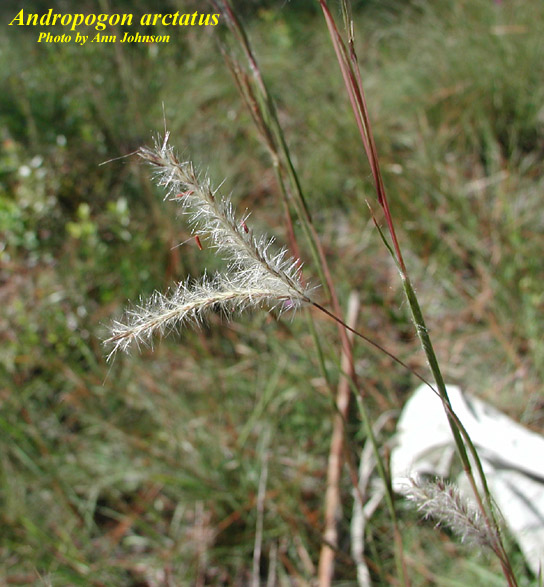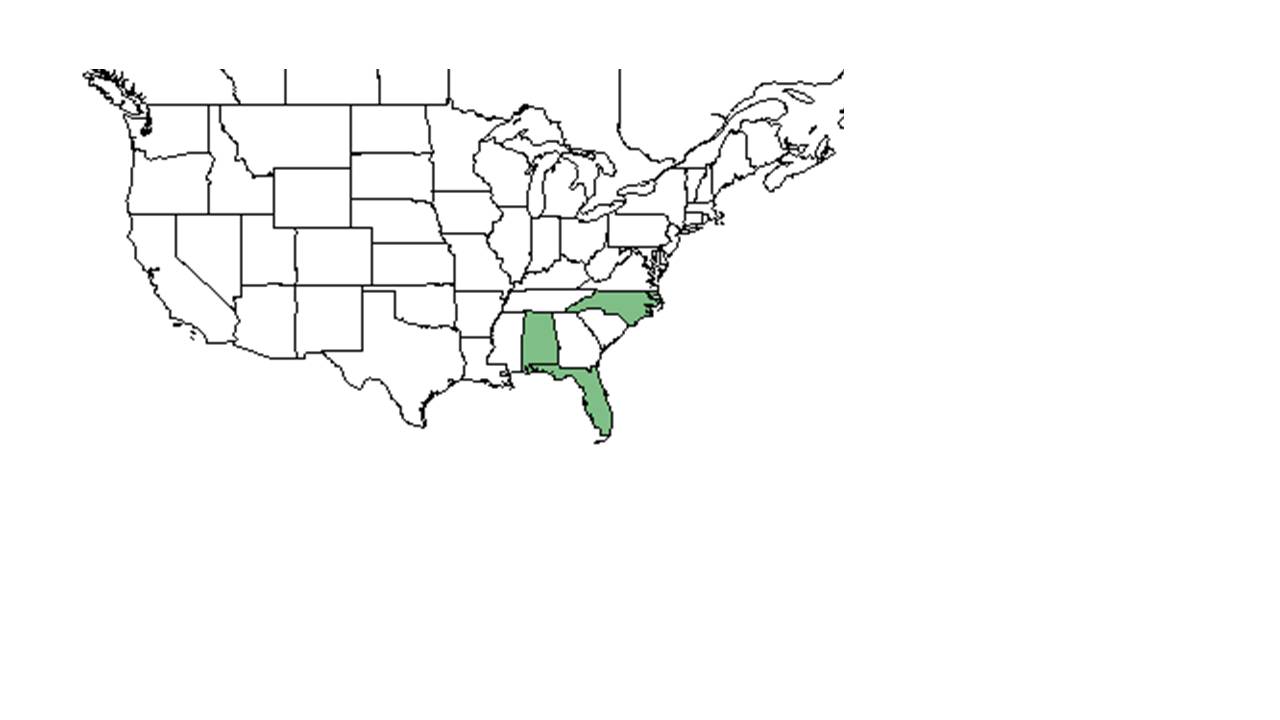Difference between revisions of "Andropogon arctatus"
| Line 39: | Line 39: | ||
===Fire ecology===<!--Fire tolerance, fire dependence, adaptive fire responses--> | ===Fire ecology===<!--Fire tolerance, fire dependence, adaptive fire responses--> | ||
| − | It is maintained by fire. <ref name="Kral1983"> Kral, R. (1983). "Andropogon arctatus Chapm. A report on some rare, threatened or endangered forest-related vascular plants of the South." Atlanta, GA, USDA Forest Service, Print. 183: 40-43.</ref> Flowers in the fall after a fire event has occurred that same year.[[annjohnson]]<ref> | + | It is maintained by fire. <ref name="Kral1983"> Kral, R. (1983). "Andropogon arctatus Chapm. A report on some rare, threatened or endangered forest-related vascular plants of the South." Atlanta, GA, USDA Forest Service, Print. 183: 40-43.</ref> Flowers in the fall after a fire event has occurred that same year.[[annjohnson]]<ref> Ann Johnson black creek bog phenological data 1993-2015</ref> |
===Pollination=== | ===Pollination=== | ||
Revision as of 15:54, 29 March 2016
| Andropogon arctatus | |
|---|---|

| |
| Photo by Ann Johnson, Atlas of Florida Vascular Plants | |
| Scientific classification | |
| Kingdom: | Plantae |
| Division: | Magnoliophyta - Flowering plants |
| Class: | Liliopsida – Monocotyledons |
| Order: | Cyperales |
| Family: | Poaceae ⁄ Gramineae |
| Genus: | Andropogon |
| Species: | A. arctatus |
| Binomial name | |
| Andropogon arctatus Chapm. | |

| |
| Natural range of Andropogon arctatus from USDA NRCS Plants Database. | |
Common names: Florida bluestem
Contents
Taxonomic notes
Description
It is a perennial. [1]
Distribution
It is occasionally found in northern and central peninsula of Florida; central and western panhandle. [2] It is found in Florida and Alabama. There is records showing that this species was found in North Carolina as well. [3]
Ecology
Habitat
This species grows scattered throughout its habitat but is very abundant (FSU Herbarium). It is found in moist, sunny, low grass-sedge clearings and open pine flatwood and savanna communities [4] as well as pinelands. [3] It is found in dry to wet loamy sands and sand pine scrub environments ([2], FSU Herbarium). Associated species include Pinus palustris, P. elliotii, Aristida stricta, Hypericum chapmanii, and Ilex myrtifolia (FSU Herbarium).
Phenology
It flowers from late September to frost.[4] It has been observed fruiting from October through November (FSU Herbarium).
Seed dispersal
Seed bank and germination
Fire ecology
It is maintained by fire. [4] Flowers in the fall after a fire event has occurred that same year.annjohnson[5]
Pollination
Use by animals
Diseases and parasites
Conservation and Management
Cultivation and restoration
Photo Gallery
References and notes
Florida State University Robert K. Godfrey Herbarium database. URL: http://herbarium.bio.fsu.edu. Last accessed: June 2014. Collectors: Robert K. Godfrey, Ann F. Johnson, Debbie White, Loran C. Anderson, A. F. Clewell, Christopher Campbell, Angus Gholson, Dennis Hardin, and Ann F. Johnson. States and Counties: Florida: Franklin, Liberty, Jackson, Gulf, Bay, Leon, and Calhoun. Georgia: Liberty.
- ↑ Hall, David Walter (1978). “The Grasses of Florida.” University of Florida – Dissertation. 442. Print.
- ↑ 2.0 2.1 Wunderlin, Richard P. and Bruce F. Hansen (2003). “Guide to the Vascular Plants of Florida.” Second edition. University Press of Florida: Gainesville/Tallahassee/Tampa/Boca Raton/Pensacola/Orlando/Miami/Jacksonville/Ft. Myers. 177. Print.
- ↑ 3.0 3.1 Weakley, Alan S. (2015). "Flora of the Southern and Mid-Atlantic States: working draft". University of NCU. 354. Print
- ↑ 4.0 4.1 4.2 Kral, R. (1983). "Andropogon arctatus Chapm. A report on some rare, threatened or endangered forest-related vascular plants of the South." Atlanta, GA, USDA Forest Service, Print. 183: 40-43.
- ↑ Ann Johnson black creek bog phenological data 1993-2015